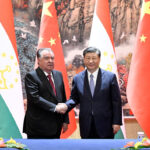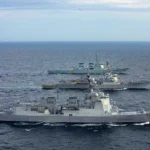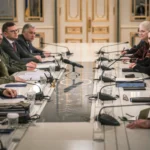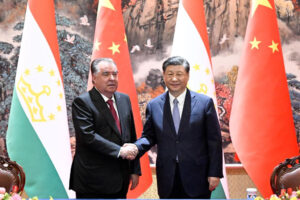Argentina could see a resetting of some global ties depending on the result of its run-off presidential election later this month – although the value of trade with partners like China and Brazil may outweigh any short-term political posturing.
While Economy Minister Sergio Massa, a pragmatist in the ruling left-leaning coalition, has signaled policy continuity, radical libertarian candidate Javier Milei has sharply lambasted China, Brazil, the pope, South America’s Mercosur trade bloc and the China-led BRICS group.
Massa and Milei will compete in a Nov. 19 head-to-head that looks likely to be a tight race, with angry voters deeply divided amid inflation running at nearly 140%, two-fifths of the population in poverty, sky-high interest rates and capital controls hurting the economy.
The vote could impact the global positioning of Argentina, South America’s No. 2 economy, which is a major grains exporter as well as a lithium and shale producer. But years of volatility have made some international investors wary and it is the top debtor to the International Monetary Fund (IMF).
Gustavo Martinez Pandiani, current Argentine ambassador to Switzerland and Massa’s likely foreign minister, said a future Massa government would seek to improve the country’s global partnerships.
“While some promise to cut ties with Brazil or China, we want more markets and more trading partners, not less,” he said.
Milei has said he “won’t make deals with communists” in China or Brazil, though he does back private trade. He has described climate change as a “lie of socialism” and said Argentine Pope Francis is “on the side of bloody dictatorships.”
Diana Mondino, Milei’s likely foreign minister, said some of his statements had been blown out of context, and that in fact he would look “to reinsert Argentina into the world.”
“Not only is there not a problem with Brazil, but we hope to be able to trade as much as possible with Brazil,” said Mondino, adding that with China – a key trade partner, creditor and investor – Milei would simply stop opaque state-to-state deals.
That could include the country’s $18 billion currency swap line with China, which has helped cash-strapped Argentina pay back its IMF debt. China is also a big investor in local lithium projects, hydro and nuclear.
“What we are not going to do are secret contracts. Argentina, this government, in the last 20 years, has had multiple secret negotiations,” she said. “That is not normal and it is what we have said we are not going to do.”
A current senior Foreign Ministry source, from the same Peronist coalition as Massa, predicted that Argentina’s ties with Brazil and China would continue regardless of who won the election.
“Relations with China are going to go as they have until now with either of the two candidates. The intense trade that exists with them cannot be dissolved,” the person said, asking not to be identified.
“The same thing would happen with Brazil: bad personal relations do not affect trade.”
TRADE BLOCS: MERCOSUR AND BRICS
Massa and Milei have also clashed on Mercosur, the regional trade bloc led by Argentina and Brazil that has faced internal tension from other members who say it is not an effective trade mechanism for negotiating global deals.
The Peronists want to strengthen the bloc, while Milei has threatened to pull Argentina out of it.
Pandiani said member countries needed to “modernize Mercosur to make it more efficient,” and added that a Massa government would consider it their “main platform” for global trade.
“Argentina has a very promising future, because it has what the world demands: proteins; traditional, green and transition energy; critical minerals such as lithium and ; rare earths and qualified human resources,” he said.
The current government has also pushed to have Argentina in the China-backed BRICS group of developing countries, which also includes India, Brazil, Russia and South Africa. Argentina was invited to join the group in August. Milei opposes joining.
“The BRICS are not a trading bloc. As of now it’s not clear why we would want to have membership in this group,” said Mondino. The BRICS are a relatively loosely-formed group with diverse political and geographical positions.
Pandiani disagreed. “Rejecting entry into BRICS is nonsense; we believe that Argentina should always sit at the negotiating tables where important issues for our future are discussed,” he said.
Source: Hellenic Shipping News
















